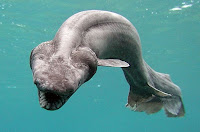Thomas Sankara: always remembered

No other African leader, and very few contemporary leaders in the rest of the world, brought so much radical change, so quickly and were so revolutionary as Burkina Faso's The Lion King Thomas Sankara . He was most visionary and creative. And he was a most incorruptible of men. Africans will never forget one of its most caring sons: As Africa looks desperately for leaders of integrity and vision, the life and ideals of the late Thomas Sankara seem more and more relevant and exemplary with the passage of time. Sankara is still venerated as much as Patrice Lumumba, Amilcar Cabral and Steve Biko are - in Africa and as much as Che Guevara is, around the world. Sankara, a charismatic army captain, came to power in Burkina Faso, in 1983, in a popularly supported coup. He immediately launched the most ambitious program for social and economic change ever attempted on the African continent. To symbolize this rebirth, he even renamed his country from the French colonial Upper Volta to B...

